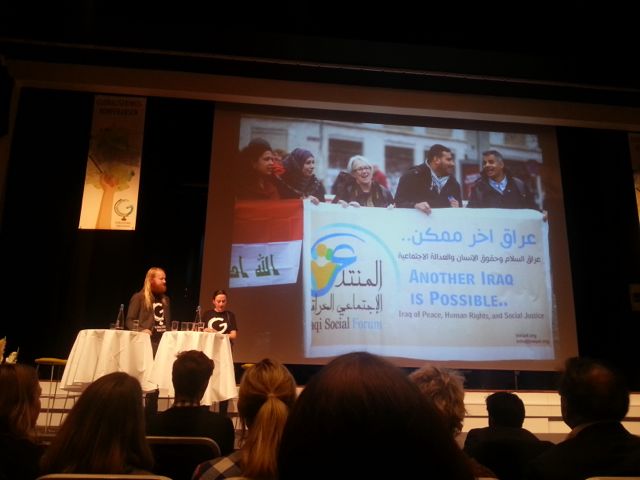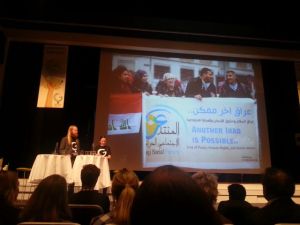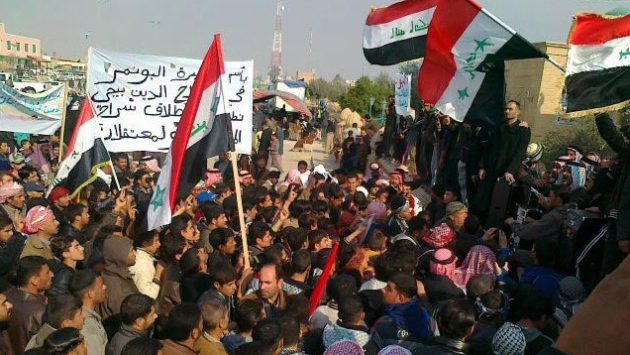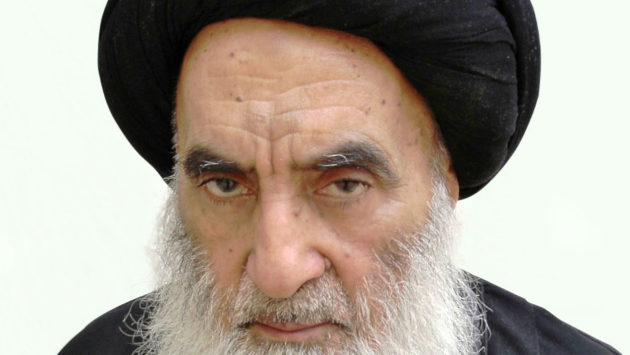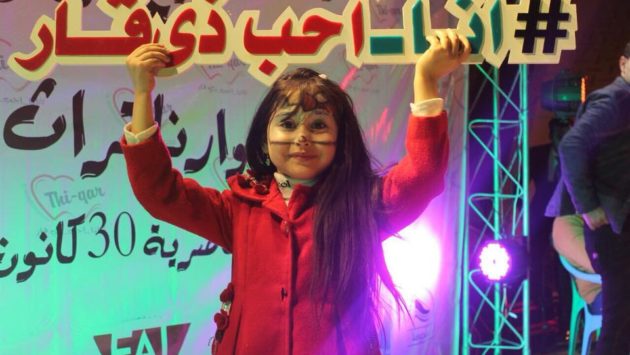The Iraqi Social Forum: Its Origins, Its Current Work, And Its Ambitions For The Future
Ali Sahib- Coordinator of the ISF
A paper prepared for the NSF- held in Oslo- Norway Nov. 2014
Origins
Given the difficulties which Iraq has gone through, and continues to endure today — caused by the accumulated burden of dictatorship and occupation, the repeated failures of government due to the dysfunctional ‘quota approach’ that defines the current political system in Iraq, given the outbreak of various kinds of terrorism, and the violence they generate — establishing an Iraqi Social Forum seemed a pressing need, demanded by the experiences of our country. We’ve worked to create the ISF in the midst of Iraq’s political crisis, acutely aware of its confusion about its own identity, and in immersed in an ongoing dispute over authority and power. There has not been enough room for dialogue and partnership in the search for solutions to our outstanding problems. The ISF seeks to turn the page on the violence and terrorism for which Iraqis paid such a high price. On the social level, we’ve worked to overcome poverty and unemployment, to address the growing issues surrounding the provision of basic services and infrastructure, including electricity, health, education, and (in)equality of opportunities.
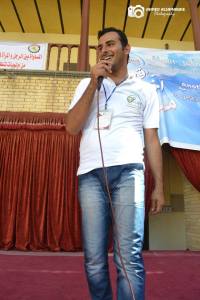
Despite the continuous increase of the Iraqi National Budget, Iraqi citizens still see little in the way of benefits. Due to the political crisis, disputes over power, authority, wealth, sectarian quotas, administrational and financial corruption, flabbiness in the governmental body, and the huge problem of unemployment, there seems to be an inability to achieve genuine and effective development in Iraq nowadays. We’ve also suffered from clashes between different authorities: we question the independence of the judiciary and worry about the attempts to politicize it. We are concerned about the weakness of law and legal authority, and the fact that much of Iraq’s legislation does not correspond to international human rights standards. Thus we worry about the continued violations of human rights and freedom of the press.
The Establishment of the ISF
For many years, enthusiasts for the idea of a social forum tried to bring all the scattered civil efforts together within an single frame, where various diverse groups could work together to improve the country’s affairs, to spread peace and social justice throughout the country. The preparatory committee was founded at the beginning of 2013, and its members worked very hard to reach out to Iraqi social movements. The preparatory committee expanded until it became the National Committee (NC) of the Iraqi Social Forum. This committee included representatives of a large number of Iraqi NGOs, trade unions, and many activists and enthusiasts. The ISF was able to attract 200 young men and women to work voluntarily for its preparation. This group was then divided into specialized teams.
On 26 Sept. 2013, Iraq hosted the first social forum of its kind in Iraq and the Middle East. This social forum was committed to the Porto Alegre charter and the World Social Forum Process. More than 3000 participants attended the activities put on/sponsored by the ISF. Among the attendees were activists and human rights and social justice defenders, and the activities ranged from workshops on workers’ rights and labor law, to discussions of all forms of freedoms, to women’s and human rights, to artistic and cultural activities, and sport. We were also honored with the participation of 17 international activists.
There were many important outcomes of this first ISF [conference/meeting/convention?] that we’d like to capture in these lines, but the most significant are:
- an emphasis on the necessity of respecting all the freedoms mentioned in the Iraqi constitution of 2005, themselves based on international conventions and treaties.
- the establishment of an open active dialogue between adversaries, and work towards the elimination of the ‘quotas approach’ within the political system as it impedes democratic transformation.
- the creation of a healthy environment for trade unions, professional syndicates, and all social movements in Iraq, allowing them to work freely.
- attention to and development of a robust education system which corresponds to labor market requirements.
- recognition of the need to respect women’s rights, and to oppose actively any and all laws and regulations inconsistent with those rights.
- recognition that civil peace is the foundation needed for building a new Iraq.
After the Establishment of the ISF
The activists that launched the first Iraqi Social Forum continue to organize activities and events which support movements within Iraqi civil society. The ISF organized a conference in support of the Save Tigris and the Iraqi Marshes Campaigns, which claim Iraqi rights to water. The conference was in cooperation with the Baghdad Provincial council. During the conference, the ISF was able to garner support from some Iraqi officials connected to the Iraqi water issues. The ISF urged them to enter into deliberations about the dire water situation in Iraq, and these discussions resulted in recommendations that deal actively with the acute water crisis the country now faces. ISF continues to follow up the outcomes of the conference.
Since the occupation of Mosul by Daash, the ISF has worked with people suffering under deteriorating living conditions, displacement and widespread sectarian division. The NC of the ISF decided to organize a number of open workshops and meetings tackling important subjects, such as preserving civil peace. This was especially vital after the security and social collapse in Iraq when two thirds of Iraqi lands were out of the control of the Iraqi security forces. Many citizens of these areas, especially minorities, were exposed to vast violations of their human rights, violations that can tear the Iraqi social fabric.
ISF also took on a number of issues that directly affect the lives of Iraqi citizens. They did this through a number of declarations in which the ISF rejected, again and again, the militarization of society, the use of war as the only solution to end crises in a way that deliberately excludes methods that operate at the political, economic, and social levels.
The ISF also participated in many international and regional conferences, meetings, and activities.
What’s next
The ISF is looking forward, in the days [and years] to come, to follow up the outcomes of the first Iraqi Social Forum.
We will also continue to coordinate social activities and to develop the abilities of volunteers and activists for the ISF. Though we now face many challenges die to the bad security situation in the country, we are still working with our partners and friends all over the world to try to find appropriate alternatives to war and violence. All of this work is in preparation for the second edition of the ISF to be held next year.
We are also working on organizing activities with Sports Against Violence, and, after much hard work to prepare, we are looking forward to the Baghdad Marathon.

